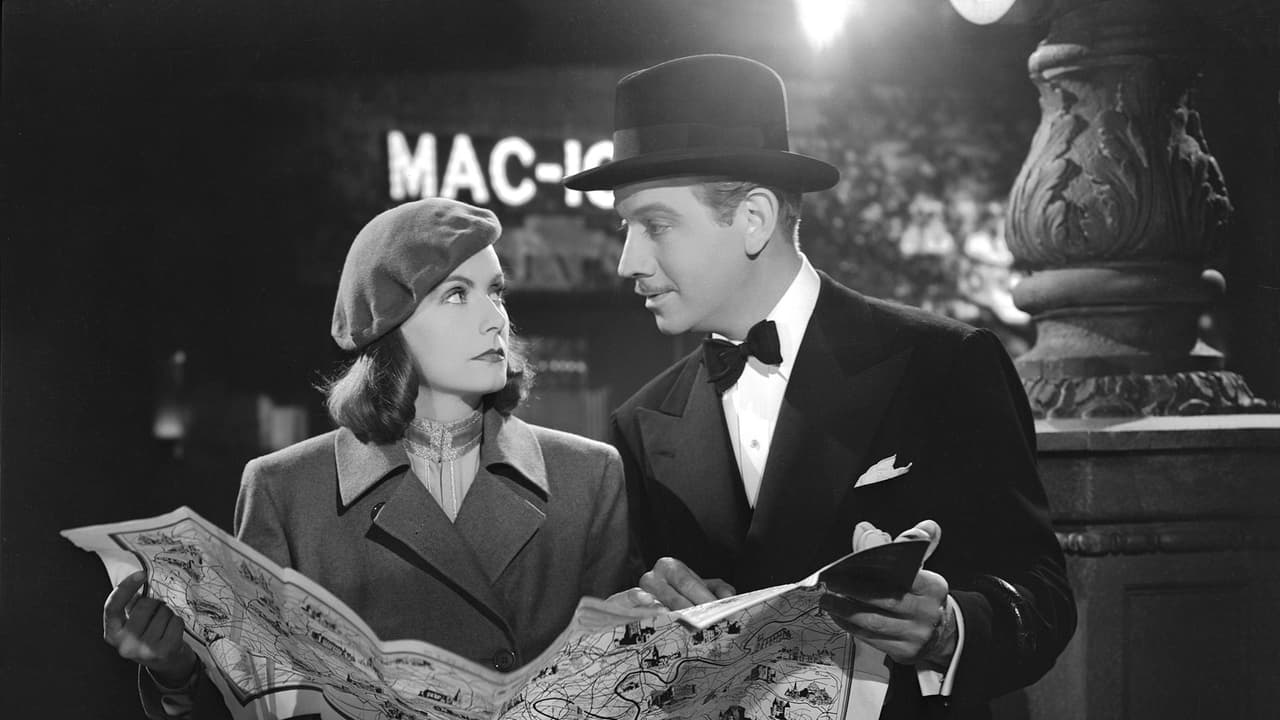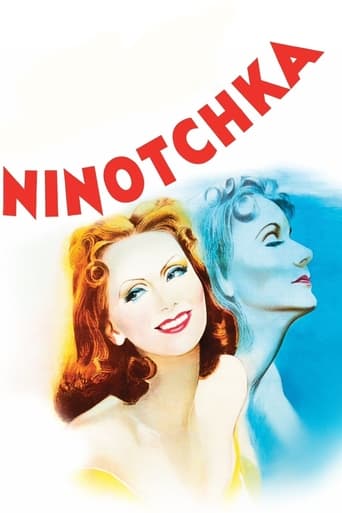ScoobyWell
Great visuals, story delivers no surprises
Intcatinfo
A Masterpiece!
RipDelight
This is a tender, generous movie that likes its characters and presents them as real people, full of flaws and strengths.
Ariella Broughton
It is neither dumb nor smart enough to be fun, and spends way too much time with its boring human characters.
mmallon4
Does communism have a moral equivalency to Nazism? Conservatives have long complained of a double stand for Nazi and communist crimes. Nazism is based on heinous sounding ideas; communism is based on nice sounding ideas. However that makes communism and left wing radicalism more appealing to people of good intentions and perhaps that makes communism more dangerous and an evil in disguise. I'm undecided on this question myself but regardless of which ideology is worse there is one thing I'm certain about: communism sucks and the fact that it has nowhere near the reputation of Nazism is disturbing. This is an ideology which was responsible for the deaths of 100 million in the 20th century yet I am able to buy t-shirts featuring its dictators in pop culture stores.The 1939 Ernst Lubitish directed and Billy Wilder penned comedy Ninotchka is reflective of this lack of morally equivalency between Nazism and communism despite the film clearly being anti communist (apparently the film was responsible for communists losing an Italian election in 1947). The scenes in Ninotchka which take place in Russia are grim. The complete censorship of information, the regimented support of the regime, the asphyxiating and claustrophobic living conditions, rationed food, fear of spying neighbours and the overall lack of personal freedoms. Yet despite critique such as this which the film levels against communism, Ninotchka does not present communism as the utterly monstrous belief system that Hollywood suggested Nazism was. When I first watched Ninothcka as a politically lay viewer that's the impression I got - "communism isn't great but Nazism is worse". That's not to say Ninotchka would be so much better a film if it went the full throttle and showed us the gulags and mass starvation but would a film like Ninotchka transposed to Nazi Germany ever get made with the same comic and tonal approach, one which doesn't go the full throttle by mentioning concentration camps and persecution of Jews and other minorities. Would it even be morally appropriate to do so? - Food for thought.One of the ways in which Ninotchka jabs at the Soviets is through the Russian characters skewered thinking. In the opening scene the three comrades on a mission in Paris attempt to justify choosing an expensive hotel over a cheap one because apparently it's what Lenin would have wanted and refusing to simply admit they really just want the royal suite ("but who said we had to have an idea"). In another scene Ninotchka explains why Soviet Russia is "peddling our precious possessions to the world at this time". She goes onto say, "Our next year's crop is in danger, and you know it. Unless we can get foreign currency to buy tractors, there'll not be enough bread for our people and you comrades." - As if tractors could overcome a drought and famine. Likewise there is Leon's (Melvyn Douglas) statement in regards to Russia, "I've been interested in your five-year plan for the last 15 years".I do find much of the Ninotchka's first 18 minutes prior to the introduction of Garbo to be a bit flat even with some humorous scenes in which the three comrades are being seduced by capitalistic decadence and start fawning over Leon. The setting up of the background behind the jewels as a plot device and the scenes between Melvyn Douglas and Ina Claire are not terribly interesting. Once Garbo appears however, the film is on fire.Greta Garbo is not one of my favourite actresses but I totally understand the appeal. Nina Ivanovna "Ninotchka" Yakushova Envoy Extraordinaire is one badass. She claims to have been a sergeant in Third Cavalry Brigade and she is certainly one with the ability to convince the uninitiated to communist ideals. Lines such as "I have heard of the arrogant male in capitalistic society" and "That's no business, that's social injustice" don't sound too different from talking points by modern lefties. Ninotchka is driven by facts and statistics in comparison to Leon who is more driven by emotion (although I guess the fact of communism's failure is one for her to ignore). The Soviet State as represented by the figure of Ninotchka is genuinely concerned with the great mass of its people but it is so interested in their statistical wellbeing that is has forgotten their emotional needs and has become cold, oppressive and inhuman. Garbo's cold emotionless voice and her stone face are fully utilised in a faultless deadpan, comic performance. However when she finally laughs for the first time and unleashes her endearing side, it feels so genuine and uplifting. At the heart of romance in Ninotchka is that of love triumphing over opposing ideologies. Ninotchka's communist ideology does rub off on Leon as he becomes somewhat of a campaign socialist and humorously turns to violence in order to track down Ninotchka later in the film. As good as Melvyn Douglas is in the role of Leon, I can't help but wish William Powell could have performed the role as no one does suave cynicism like Powell. Regardless Douglas does deliver one of my all time favourite set of movie lines in which he tells Ninotchka to just smile "At the whole ridiculous spectacle of life, at people being so serious"; I like to remind myself of this whenever I feel frustrated at the state of the world we live in.One of the most interesting scenes in the film involves Leon's butler Gaston (Richard Carle) telling his master about his concern regarding Ninotchka's (or simply the Bolshevik Lady) influence over him; Gaston as much as refuses to dust Leon's copy of Karl Marx's Capital as it is a socialistic volume. Gaston also mentions how Leon has not paid him two months in the movie suggesting that capitalism isn't perfect; however Gaston finds the prospect of sharing belongings with Leon and being on an equal footing as him to be terrifying. By the end of the film neither Ninotchka nor Leon directly renounce communism but I doubt they will be returning to Russia any time soon.
jpstewart-02578
Having watched Melvyn Douglas wonderfully interpret the character of the Dansker in the movie Billy Budd last week (the best thing in an otherwise OK movie) I am disappointed to say I found his performance a weakness in Ninotchka. Garbo is good, but no better. Sig Rumann and Felix Bressart are reasonably animated. This movie deserves a 6 out of ten rating but no better.
L R
This movie is amazing! It truly is better than most of the today's Hollywood output. It starts of wonderfully and it manages to get you into a good mood! Greta Garbo plays very well! She is a close to perfect cast! And the rest of the cast is great as well. ************SPOILER ALERT************The dynamic between Ninothcka and Leon is very very good! The scene where he tries to get her to laugh in the high point of the movie. After that everything changes. And that scene is really magical!So, she goes from being stern to being happy! The only thing I would change is I would make the transition just a notch more gradual. Because it really went from 0 to a 100 in a split second. But nonetheless, it worked great and I am happy it happened relatively soon, so that the movie has a dynamic range, and goes into lot's of different "moods". Besides wanting to see a more gradual and believable transformation of Ninotchka, I really have nothing more to say against it. I enjoyed it a lot! Wow! And this was made in 1939! Goes to show you, that really was the year when filmmakers got it all figured out. One of the best years for cinema to this day.Delightful! Funny! Engaging! Enjoyable! Real rating: 8.2MY RATING SYSTEM:9.4 - 10 = rating 10 ***** 8.6 - 9.3 = rating 9 ***** 7.8 - 8.5 = rating 8 ***** 7.1 - 7.7 = rating 76.1 - 7.0 = 6 5.1 - 6.0 = 5 4.1 - 5.0 = 4 3.1 - 4.0 = 3 2.1 - 3.0 = 2 1.0 - 2.0 = 1
Jackson Booth-Millard
From director Ernst Lubitsch (To Be or Not to Be, Heaven Can Wait), I had heard the leading actress name a few times, I didn't know much about her, especially not that she retired at the age of thirty five after only twenty eight films, and I was looking forward to this title I recognised from her career. Basically in Paris, France, three Russians, Iranov (Sig Ruman), Buljanov (Felix Bressart) and Kopalsky (Alexander Granach), are selling jewellery from the aristocracy that they confiscated during the 1917 Russian Revolution, and arriving they meet Count Leon d'Algout (Melvyn Douglas) who is trying to retrieve her jewellery back for Russian Grand Duchess Swana (Ina Claire). But he corrupts the three men and convinces them to stay in Paris since they have become accustomed to their French surroundings, so special diplomatic agent Nina Ivanovna "Ninotchka" Yakushova (Oscar nominated Greta Garbo) has been sent by the Soviet Union to make sure the sale goes ahead and bring the three men back to Russia. She is stern and non nonsense with her attitude, and for a while she has no time to mess around with pleasure rather than business, but after meeting Leon and being introduced more to the culture of the West she lightens up. Ninotchka and Leon slowly fall in love with each other, and this allows the three Russians to do a kindness for capitalism, and in the end the Russian agent leaves behind her work to have a relationship with the Count, and one of the three men protects that the other two were unfair to him, this is a joke. Also starring Bela Lugosi as Commissar Razinin and Gregory Gaye as Count Alexis Rakonin. Garbo gives a great performance as the first strict and then light-hearted Russian agent, and Douglas is likable as the charming man and love interest, I will confess that I could not understand the political stuff and I could not follow everything going on, but I did laugh when the jokes were simple and well made, the most funny material is during the café scene, and the love story is nice, so it was an fun sophisticated comedy. It was nominated the Oscar for Best Picture, Best Writing, Original Story and Best Writing, Screenplay. Greta Garbo was number 5 on 100 Years, 100 Stars - Women, and she was number 44 on The World's Greatest Actor, the film was number 52 on 100 Years, 100 Laughs. Very good!

